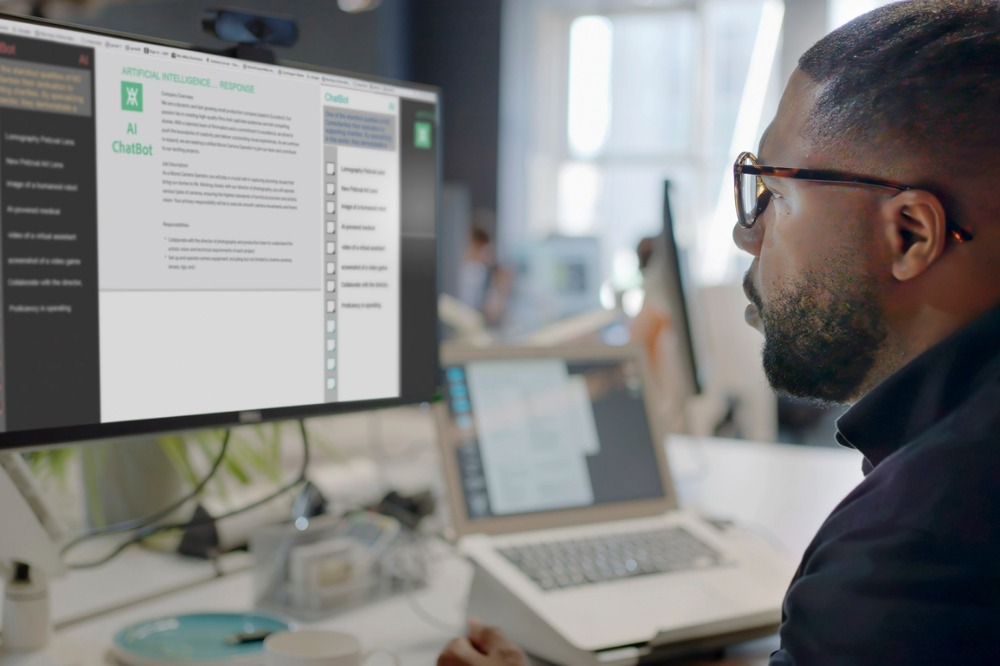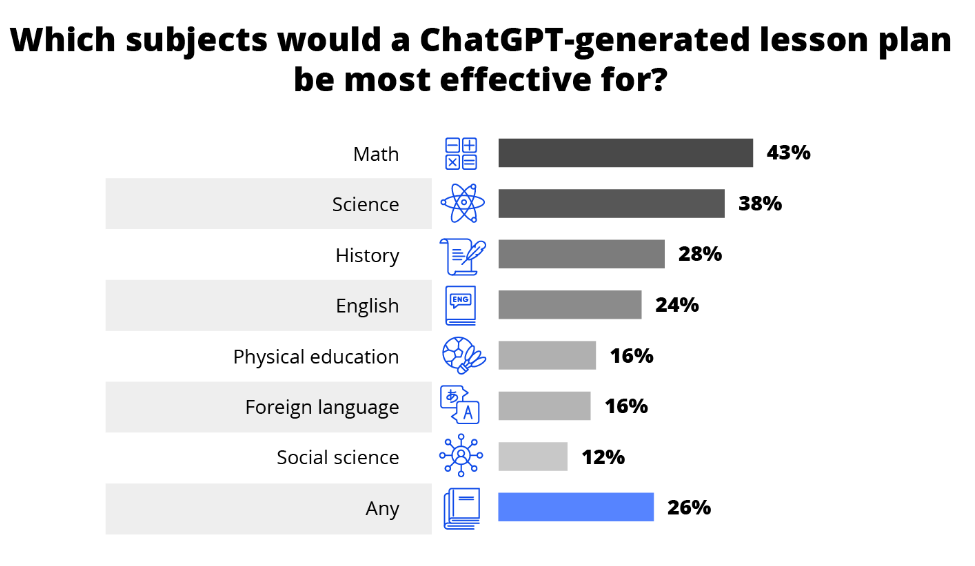
It’s been just over a year since ChatGPT was released, and while it’s too early to know the full implications this technology will have on teaching and learning, some educators are already using it to assess students’ writing, streamline their own workloads, and even create lesson plans.
But how useful are generative AI tools for this purpose?
To find out, several UTS researchers recently surveyed 336 K-12 educators across the world – specifically in the U.S., Australia, and EU countries – after creating a lesson plan generation tool. Using that tool, they then created lesson plans based on the results of the survey.
On average, K-12 educators rated ChatGPT-generated lesson plans a 7.6 out of 10, with 4 out of 5 K-12 educators saying a ChatGPT-generated lesson plan would be effective.

A whopping 61% of K-12 educators said they would consider using ChatGPT for lesson planning after seeing what it could produce, but just 1% said they were already using it. Tellingly, 71% of K-12 educators claimed ChatGPT-generated lesson plans were more detailed than their own.
“This study highlights the transformative shift AI has had on our education system, with 80% of educators believing using ChatGPT for lesson planning would be effective,” Aditya Sachdeva, Data Journalist, on behalf of UTS Online told The Educator.
“Our findings underscore the need for a proactive approach from educators to leverage AI to complement traditional teaching methods, fostering a more dynamic, interactive, and personalised learning environment.”
For educators and students to keep up with technology, AI will have to be inevitably taken into account, Sachdeva added.
There are also opportunities for ChatGPT-generated lesson plans to be adapted to accommodate different learning styles, ensuring inclusivity and equity in the classroom, the research found.
Sachdeva said while the results of the study show, there is still room for improvement, the AI tool itself produces a baseline that can be flexible and make it easier for educators to tailor content to various learning styles.
“However, educators must take the time to adapt and accommodate their lesson plans to ensure equity and inclusivity in the classroom, to major elements that AI may not be able to take into account as of yet.”
Teachers owe it to themselves to upskill in AI
Sachdeva said that to effectively integrate AI in education, professional development is crucial.
“Entire school districts will need to have consistent training on how to leverage and use AI properly in the classroom, especially as technology rapidly evolves,” he said.
“The training should focus on developing a critical understanding of AI capabilities and limitations, enabling educators to optimize AI tools for enhancing learning outcomes.”
Sachdeva said that in the long term, integrating AI like ChatGPT into lesson planning can open up more educational strategies for educators.
“Their roles in educating could slightly shift from primarily delivering knowledge to facilitating new learning,” he said.
“Regarding the learning outcomes of students, AI can provide accessibility to education that is more inclusive to all types of students, more engaging, and certainly much more personalized.”
Sachdeva said in this respect, customisation is the key, as AI has the ability to quickly analyse what is working and what is not.
“Consider strengths and weaknesses of students, and identify preferences in order to tailor learning experiences for each student, all in real-time.”
To read the full findings and methodology of the UTS research, click here.


